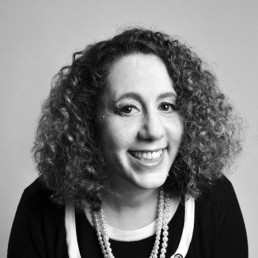
Written by Laila El-Metoui
Equality Advocate | Stonewall Lesbian Role Model 2020 | Pride 365 Champion | Helping leaders foster inclusive & diverse workplaces through training and consultancy | Founder of Pride in Education and Educating OUT Racism
A massive thank you to DiverseEd for organising such a comprehensive event.
My reflections are about us having a trauma-informed, bias-aware and compassionate curriculum, so what does that mean?
One of the previous panelists (Amanda) mentioned refugees and trauma in the previous panel and my curriculum background is in ESOL , EFL teaching English to migrants, refugees and people seeking refuge which is better than referring to them as ‘asylum seekers’. I will be talking about it from a Further Education perspective in the UK and looking at the language we use.
Trauma-informed:
We can look at it from many angles but I’d like to suggest a couple
Firstly personal trauma , you cannot look at someone and guess what their background and experiences have been. Secondly historical trauma – which includes decolonising the curriculum and not looking at subjects in silos for example when teaching French one could look at where it is spoken in 29 countries, why ? because France colonised those countries, the language we use is important, these countries were not ‘conquered’ as stated in britanica.com but invaded. From an ESOL perspective it means being mindful of potential triggers and having systems in place to support them but also the trauma that people may have experienced as a result or leaving their homes or the current pandemic.
Bias-aware:
Breaking down stereotypes and being aware of our own prejudices is a good way to start.
Looking at LGBT+ lives for example, some of the myths commonly heard within the sector include – you cannot embed LGBT+ within classes where people have low level of English, looking at the the language we use and teach for example asking about pronouns for referring to partner and sibling rather than husband and wife, sister brother will lead to a more inclusive curriculum. Other panellists (Lisa) mentioned stories in the previous panel and Chris talked about the lack of visibility in course books, for those very reasons I have designed my own resources, one can embed any themes within a story. I have written narratives which included themes such as domestic violence, social isolation, my journey to the UK. By creating relatable and meaningful content we will develop more than reading, writing, speaking and listening skills, skills like empathy, critical thinking and compassion.
Compassionate:
Compassion is about kindness and fostering an environment where people are free to make mistakes, to experiment and express their authentic selves. Challenging discrimination compassionately, eliciting the difference between understanding, agree and accept; eliciting the difference between an insult and an opinion. This needs to be contextualised within a whole organisational approach and include:
- the use and collection of data so that the content reflects local population
- understanding achievement, success and progression
- a zero tolerance policy with regards to discrimination
- easy access to resources knowledge sharing and training
- making different groups visible and represented (365 days a week) not just for black history month, LGBT HM or disability week
Organisations also need to have:
- supportive forums to raise issues
- a clear and visible commitment from senior leadership
But we also need funding, the ESOL funding has been slashed by the UK government more than halved in fact in the last 5 years. Other factors include the imminent exit from the EU, the immigration Law and many other socio-economic factors which contribute towards a hostile environment for people of colour.
Digital exclusion has been highlighted by this pandemic with the most vulnerable groups not being able to access ESOL provision due to not having a mobile phone or access to the internet. Giving people the tools to access learning is part of having a compassionate curriculum.
To end on a positive I want to highlight how kind people have been and I’d like to invite any ESOL practitioner watching to join the newly created Facebook group called Digital pedagogy for ESOL teachers, where practitioners can get practical tools and resources to share knowledge and support each other: https://www.facebook.com/groups/741096156803038/?ref=share
Laila El-Metoui she/ her / hers
https://www.linkedin.com/in/lailaelmetoui/
Equality Advocate | Stonewall Lesbian Role Model 2020 | Pride 365 Champion | Helping leaders foster inclusive & diverse workplaces through training and consultancy | Founder of Pride in Education and Educating OUT Racism

